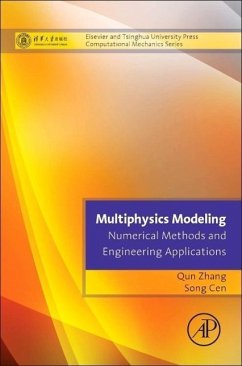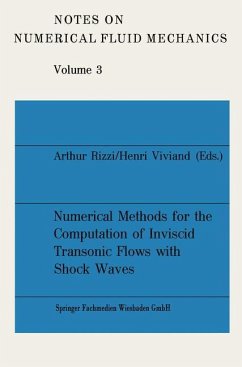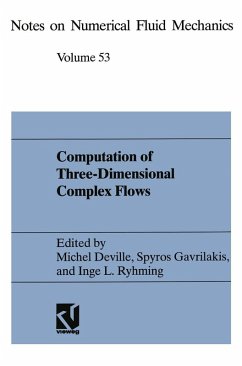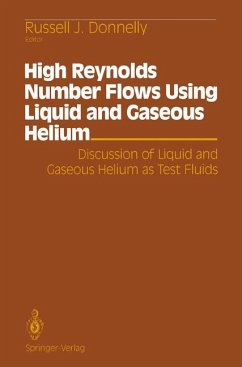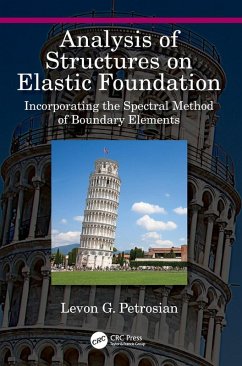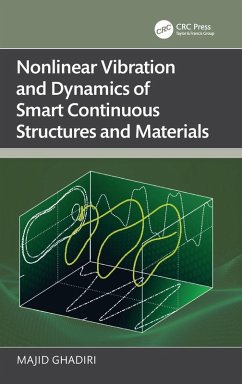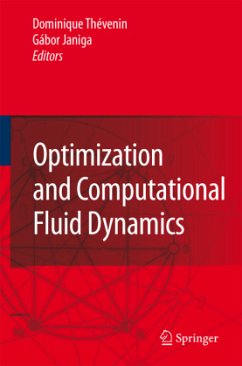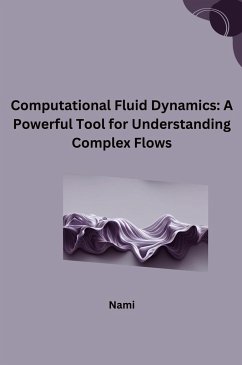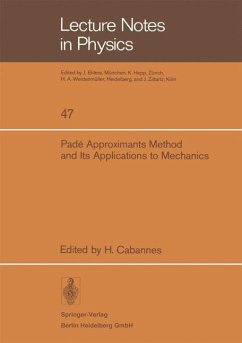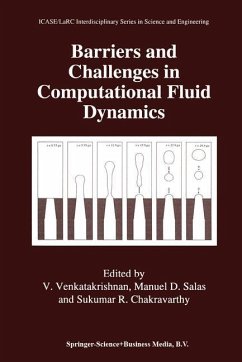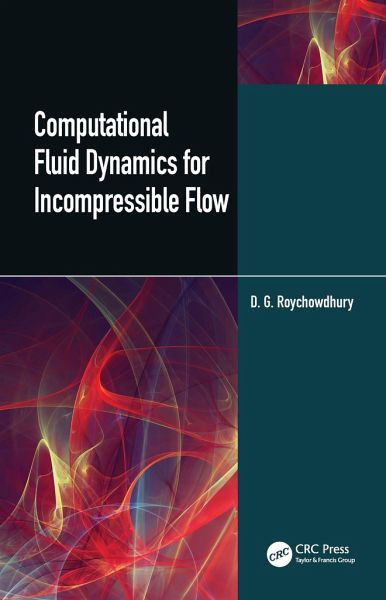
Computational Fluid Dynamics for Incompressible Flows
Versandkostenfrei!
Versandfertig in 6-10 Tagen
47,99 €
inkl. MwSt.

PAYBACK Punkte
24 °P sammeln!
This textbook covers fundamental and advanced concepts of computational fluid dynamics, a powerful and essential tool for fluid flow analysis. It discusses various governing equations used in the field, their derivations, and the physical and mathematical significance of partial differential equations and the boundary conditions. It covers fundamental concepts of finite difference and finite volume methods for diffusion, convection-diffusion problems both for cartesian and non-orthogonal grids. The solution of algebraic equations arising due to finite difference and finite volume discretizatio...
This textbook covers fundamental and advanced concepts of computational fluid dynamics, a powerful and essential tool for fluid flow analysis. It discusses various governing equations used in the field, their derivations, and the physical and mathematical significance of partial differential equations and the boundary conditions. It covers fundamental concepts of finite difference and finite volume methods for diffusion, convection-diffusion problems both for cartesian and non-orthogonal grids. The solution of algebraic equations arising due to finite difference and finite volume discretization are highlighted using direct and iterative methods. Pedagogical features including solved problems and unsolved exercises are interspersed throughout the text for better understanding. The textbook is primarily written for senior undergraduate and graduate students in the field of mechanical engineering and aerospace engineering, for a course on computational fluid dynamics and heat transfer. The textbook will be accompanied by teaching resources including a solution manual for the instructors.
Written clearly and with sufficient foundational background to strengthen fundamental knowledge of the topic.
Offers a detailed discussion of both finite difference and finite volume methods.
Discusses various higher-order bounded convective schemes, TVD discretisation schemes based on the flux limiter essential for a general purpose CFD computation.
Discusses algorithms connected with pressure-linked equations for incompressible flow.
Covers turbulence modelling like k- , k- , SST k- , Reynolds Stress Transport models.
A separate chapter on best practice guidelines is included to help CFD practitioners.
Written clearly and with sufficient foundational background to strengthen fundamental knowledge of the topic.
Offers a detailed discussion of both finite difference and finite volume methods.
Discusses various higher-order bounded convective schemes, TVD discretisation schemes based on the flux limiter essential for a general purpose CFD computation.
Discusses algorithms connected with pressure-linked equations for incompressible flow.
Covers turbulence modelling like k- , k- , SST k- , Reynolds Stress Transport models.
A separate chapter on best practice guidelines is included to help CFD practitioners.





